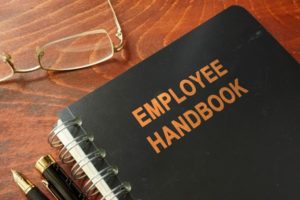In Part 1 of our series, we discussed common work-related lawsuits and what is often involved. In Part 2 learn about how to protect your organization from employee lawsuits, and find out how an Arizona business lawyer from Harrison Law, PLLC can help businesses overcome their employment-related legal issues by calling (480) 320-2310.

How Do Companies Protect Themselves from Lawsuits?
Employers can take proactive steps to safeguard themselves from potential legal disputes from employees. In answer to “How do you avoid an employee lawsuit?”, here are the essential strategies that organizations can implement to mitigate the risk of lawsuits:
- Clear policies and procedures: Employers may establish and communicate clear policies and procedures regarding employee behavior, performance expectations, and conflict resolution mechanisms. This clarity can help prevent misunderstandings that could lead to legal action.
- Regular training programs: Investing in employee training programs on anti-discrimination laws, harassment prevention, and diversity initiatives is crucial. Well-trained employees are more likely to understand their rights and responsibilities, reducing the chances of discrimination or harassment claims.
- Effective communication channels: Establishing open and transparent communication channels for employees to raise concerns, provide feedback, and report grievances is vital for identifying and resolving issues as early as possible. Employers could also foster a culture of diversity and inclusion and demonstrate a commitment to fair treatment, as well as encourage an environment where employees feel safe to speak up without fear of retaliation, to help prevent misunderstandings that may escalate into grievances or legal claims.
- Legal compliance audits: Conducting regular legal audits of company policies and procedures can help identify potential compliance gaps with employment laws, such as federal anti-discrimination laws and federal and state employment laws; considering legal counsel to help with reviewing policies and provide guidance on effective practices can further mitigate the risk of litigation. Addressing these issues proactively can prevent lawsuits and demonstrate employer commitment to adhering to legal standards.
- Employment practices liability insurance: Consider obtaining employment practices liability (EPL) insurance to protect the organization from costly employment-related lawsuits. This specialized insurance coverage can help cover legal expenses and damages arising from discrimination, harassment, or wrongful termination claims.
By implementing these proactive measures, employers can create a work environment that values equity, respect, and fairness. As a result, this may reduce the risk of workplace lawsuits and foster positive employer/employee relationships.
Can Employees Be Held Personally Liable?
Understanding the potential consequences and liabilities faced by employees in an employee lawsuit can be beneficial to employers looking to prevent workplace conflicts and employee lawsuits. Below is an overview of these repercussions:
- Participating in discriminatory practices or illegal actions within the organization can shift personal liability onto employees in some circumstances.
- Acting outside the scope of their employment, engaging in harassment, or violating anti-discrimination laws could lead to employees being individually accountable for their actions.
Are There Any Defenses Available in a Workplace Lawsuit?
Employers can utilize various defenses against workplace lawsuits, depending on the specific allegations and circumstances of the case. Here are some common defenses that employers often rely on to protect themselves against employee claims:
- Statute of limitations: Employers may argue that the employee’s claim is not a valid one if the individual did not file within the required timeframe specified by the applicable statute of limitations.
- Failure to exhaust administrative remedies: An employer might contend that the employee failed to follow the necessary steps before filing a lawsuit. For example, not filing a charge with the EEOC, which the United States Government stipulates is the entity that enforces workplace discriminatory laws, or not adhering to internal grievance procedures.
- Legitimate non-discriminatory reasons: In cases of discrimination, employers may assert that any adverse employment action occurred because of a legitimate non-discriminatory reason, such as poor job performance, misconduct, or economic necessity.
- Bona fide occupational qualification (BFOQ): Employers could argue that a particular characteristic (like age, sex, or religion) is a necessary qualification for the job in question and thus not discriminatory.
- After-acquired evidence: An employer may present evidence discovered after taking an employment action that could potentially justify or defend this decision.
These defenses play a crucial role in shaping the outcome of workplace lawsuits. Employers often rely on them to challenge various claims brought by employees seeking legal remedies. To effectively navigate the complexities of workplace disputes, it is essential for both employees and employers to understand these defenses.
Contact an Arizona Business Lawyer Today
The basis of legal claims from employees ranges widely, such as discriminatory promotion denials and unfair terminations protected by federal and state laws or unpaid wages. By implementing several protection methods, employers can stop workplace conflicts from escalating and prevent potential employee claims. Learn more about the methods of protecting against employee lawsuits and consider contacting an experienced Arizona attorney by calling Harrison Law, PLLC at (480) 320-2310.
© 2024 Matthew W. Harrison and Harrison Law, PLLC All Rights Reserved
This website and article have been prepared by Harrison Law, PLLC for informational purposes only and does not, and is not intended to, constitute legal or financial advice. The information is not provided in the course of an attorney-client relationship and is not intended to substitute for legal advice from an attorney licensed in your jurisdiction.






